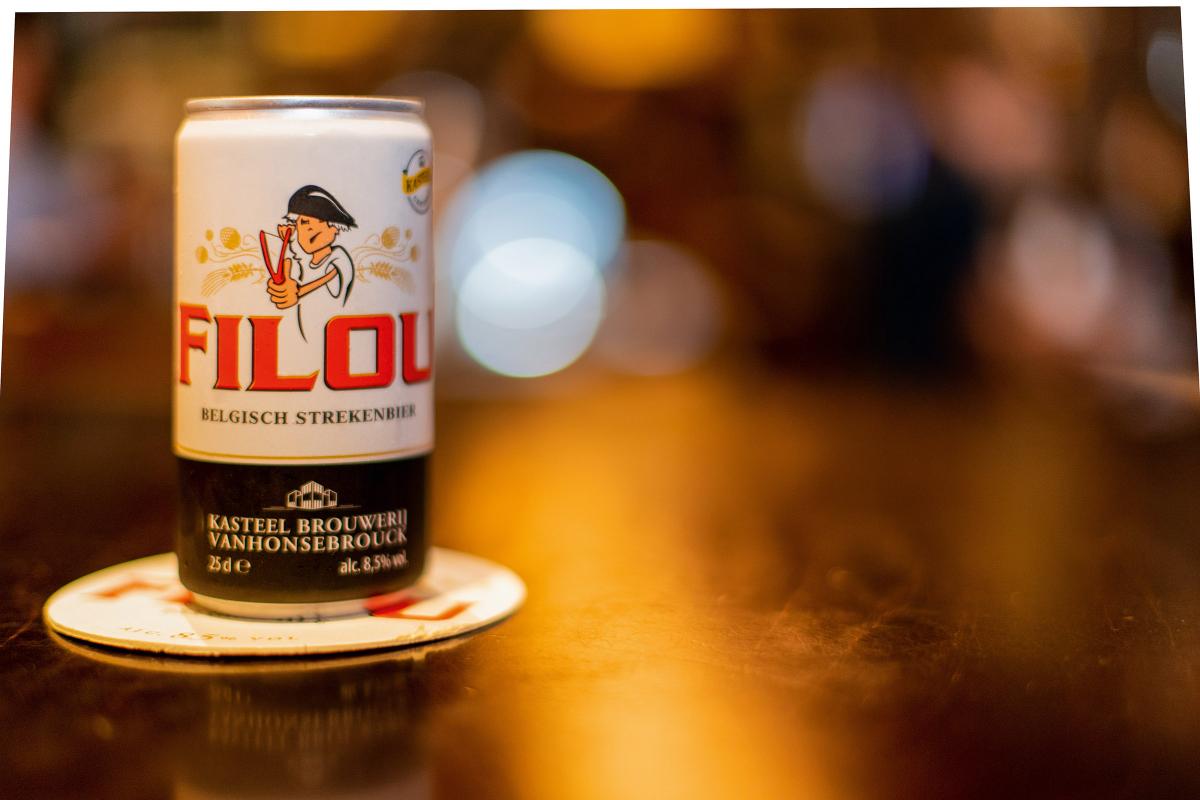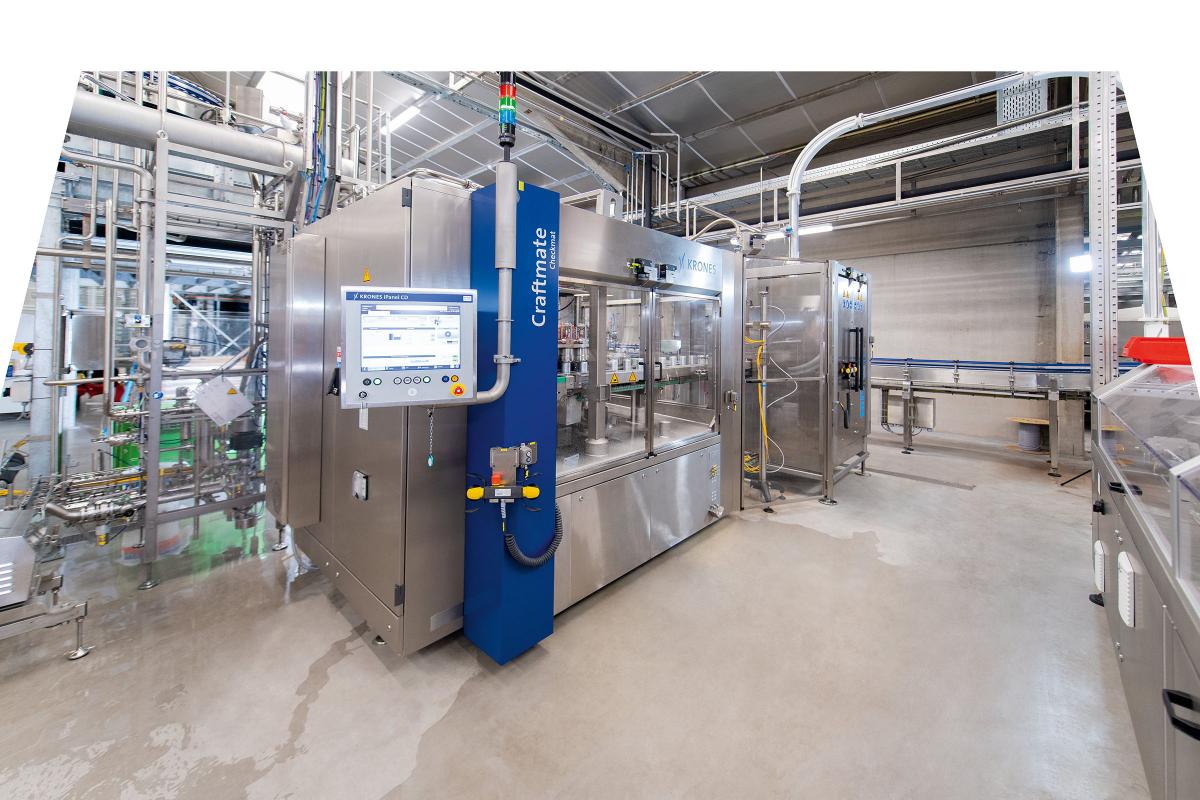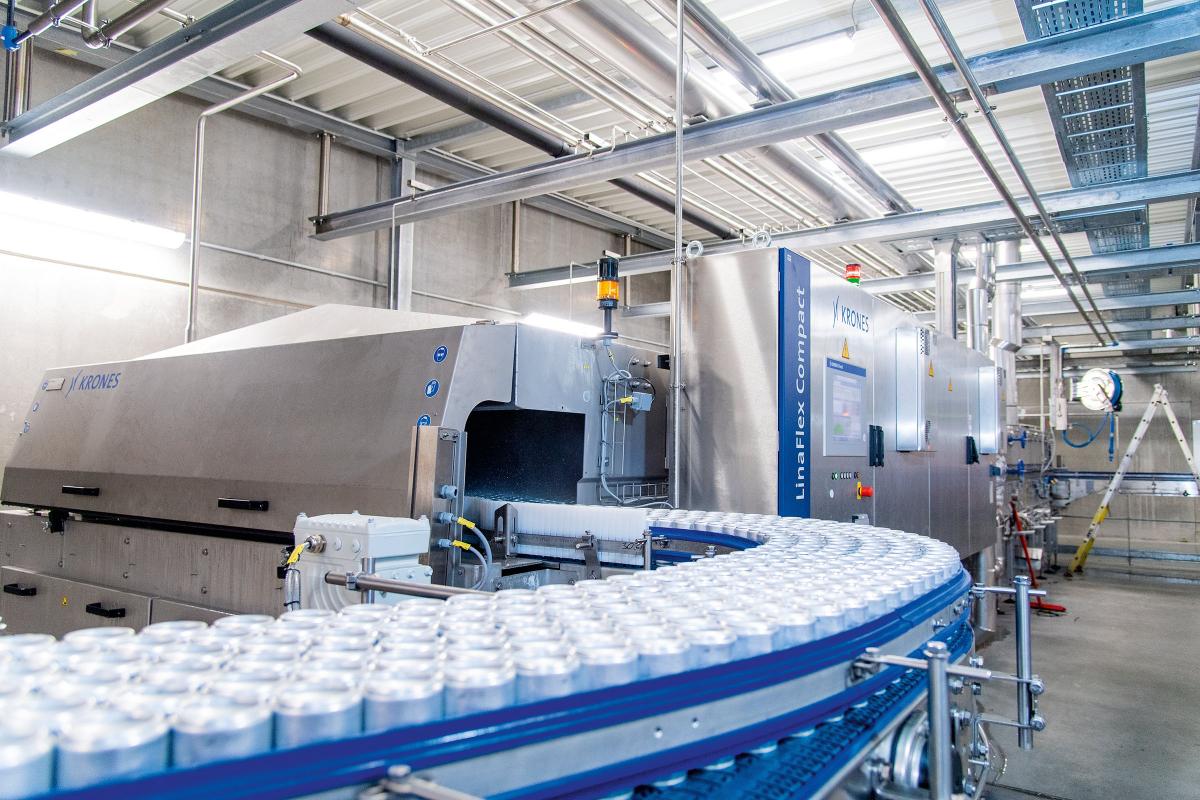ALL OVER the world, the beer market is being transformed. “Craft beer is now on everyone’s lips, but for us here in Belgium these hand-crafted brews are not really anything new. Our specialty beers have a long tradition behind them, essentially they’re in a way the grandparents of the present-day craft beer,” explains Xavier Vanhonsebrouck, CEO and proprietor of Kasteel Brouwerij Vanhonsebrouck. The brewery has 30 types of beer made with top-fermented, spontaneous and mixed fermentation. The Kasteel Rouge, a high-strength beer with a cherry aroma, is sold in more than 60 countries. The latest addition is Filou, a Belgian Ale with an alcohol content of 8.5%.

The Vanhonsebrouck brewery has 30 types of specialty beer made with top-fermented, spontaneous and mixed fermentation.
The proprietor, a visionary, charts courses that at first glance may appear to be rather unusual. “I believe that the future of beer packages in general lies in the can. It’s like a small keg, and doesn’t let any light through, which crucially improves the quality of the beer. In terms of transportation, too, the can scores highly, because it can be space-savingly packed in trays or cartons. And instead of three truckloads for glass bottles you only need one truck for the same amount of beer in cans.”
Focus on sustainability
Mr Vanhonsebrouck sees the most significant advantage when it comes to sustainability: “In our operations, the can is a non-returnable package. So, no water is required for cleaning it, and it can be 100% recycled.” This high proportion is owed to his well-thought-out packaging concept: in the end-of-the-line packaging, the handle is integrated directly into the carton design, and can be unfolded with a single manipulation. The carton itself, moreover, is made of recycled paper, which can, of course, be subsequently recovered.
For the container dress, there is a combination of cost-efficiency and sustainability: when sizeable quantities of beer are being canned, the brewery uses preprinted cans. Only in the case of small batch sizes are blank containers fitted with sleeve labels. These in their turn likewise meet the brewery’s stringent ecological stipulations: for instance, thanks to a perforation, the sleeves can be very easily separated from the can – and thus from the aluminium.

The Craftmate C can handle up to 17,000 containers per hour and excels in terms of a minimised footprint.
Experience proves persuasive
To achieve the vision of specialty beers in cans, in 2018 Mr Vanhonsebrouck began looking for a suitable partner. “Krones did a brilliant job with our greenfield brewery project, which is why they were also the first vendor we contacted about the canning line – and we found their concept very persuasive,” says Production Manager, Hans Mehuys.
Production was already up and running six months or so after order placement. “We’re currently using the canning line for one or two days a week – and we only need one operator for it. Besides our best-selling Kasteel Rouge, we’re also running our latest brand Filou on it, plus small batches of other specialities like fruit-based beers, IPAs or porters,” he explains. Since most of the beers have alcohol contents of more than 8%, the brewery also uses small 0.25-litre cans in addition to the 0.33 and 0.5-litre sizes.

The LinaFlex Compact is the first pasteuriser in this order of magnitude on the market that can operate with a dynamic PU control.
Compact canning line
Vanhonsebrouck can handle up to 17,000 containers per hour with its new compact line. The first technical highlight is simultaneously the heart of the line: the Craftmate C. This meets the stringent requirements of all those brewers who produce relatively small batches – and for whom Krones’ otherwise customary Modulfill C can filler would be overdimensioned in terms of both technology and space requirement. Thanks to its compact and easily accessible layout, the Craftmate can be accommodated on a minimised footprint. In technological terms, by contrast, it incorporates field-proven features from the large can filler series, like a volumetric filling system with 24 electro-pneumatically controlled filling valves and inductive flow meters. When it came to configuring its Craftmate, Vanhonsebrouck was already thinking one step ahead, too: for example, the machine would also be able to inject nitrogen into the beer or even can wines.
After seaming and fill level inspection, the cans are passed to the next Krones specialist for the low output range, the LinaFlex Compact. Here, too, the engineering is based on Krones’ field-proven pasteuriser technology – it’s just that it’s accommodated in a compact machine housing. This is the first pasteuriser in this order of magnitude on the market, for instance, that can operate with a dynamic PU control. The CHESS heating system has likewise been space-savingly integrated.
For drying the cans, Vanhonsebrouck uses two Linadry units. Depending on the type of beer involved, the Sleevematic M installed downstream either dresses the cans in labels or allows them simply to pass through. Whether with or without a sleeve – in the dry end, all the cans are fed into the Variopac Pro WT, which groups the containers into 6-, 12- or 24-can packs and then places these in a wrap-around carton.
“With a project like this, it’s important to have a vendor that thinks exactly the way you do,” says Mr Vanhonsebrouck. “We’re the first Belgian specialty brewery to have ventured the step into canning. We embrace visionary thinking, and have the future firmly in our sights – and that applies to Krones as well.”
Now that the preconditions have been put in place with the new line, the next step for Vanhonsebrouck is to get consumers, too, to appreciate the idea of specialty beers in cans. “That’s not going to be easy,” Mr Vanhonsebrouck admits. “But with attributes like quality and sustainability, we have cogent arguments to advance – and I’m confident that our customers will quickly come to recognise these advantages.” But no matter whether it’s cans or glass bottles: when it comes to enjoying the beer itself, nothing’s really changed: after all, without exception, Belgium’s beers are drunk from glasses.














